Hummingbirds are one of the most wonderful parts of the spring and summer. They are almost universally adored by people across the globe, and many individuals spend a lot of their time, energy, and money trying to attract these birds to their yards. Even if you put a significant amount of effort into making your garden a hummingbird paradise, sometimes these birds only stay for a short spell. Let’s explore six reasons why hummingbirds may have stopped visiting your homes and gardens and disappeared altogether.
1. Food Sources in Your Yard Have Lessened
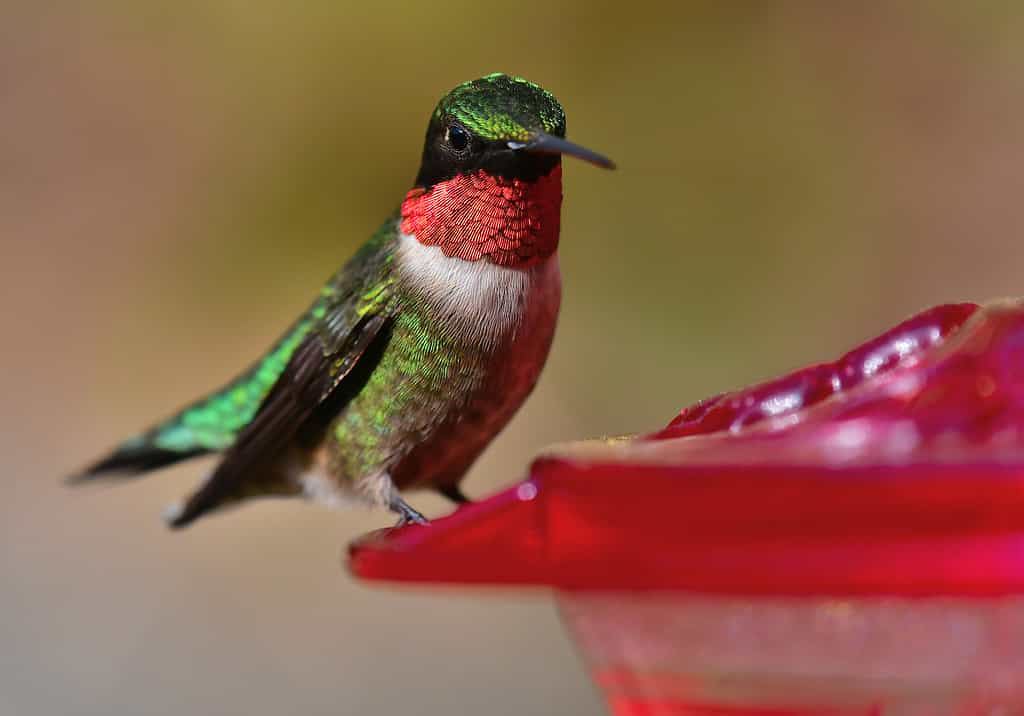
While hummingbirds must face dangers such as inclement weather and strong winds throughout their migration, searching for food can be difficult as well.
©Robert Winkler/iStock via Getty Images
One of the most important parts of life for a hummingbird is access to ample food sources. Because these little birds have such a high metabolism, they must eat almost constantly to maintain their body weight. Because of this, many hummingbirds have charted out where the most fruitful feeders and flowers are so that they can meet their intake needs. If you fail to clean your hummingbird feeder or allow flowers they enjoy to die off, hummingbirds may disappear from your yard altogether.
2. Hummingbirds Have Detected Danger Nearby
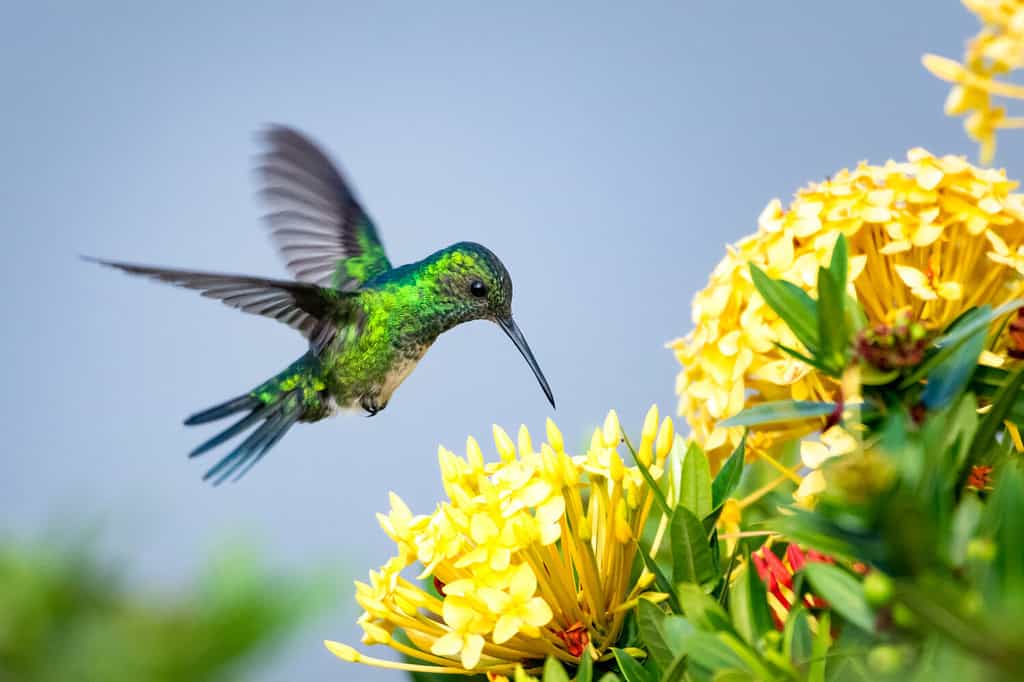
While some hummingbirds are braver than others, many are highly alert and flee at the first sign of danger.
©Chelsea Sampson/Shutterstock.com
Hummingbirds are very perceptive creatures, and even the smallest inclination that danger is nearby could scare them off. If you have outdoor cats roaming around your yard, this could be a major deterrent. In addition, overexcited or curious dogs may frighten hummingbirds too, even if they’re friendly. Finally, other birds and certain insects predate hummingbirds as well. If any of these animals are present in your garden or yard, it might be why your hummingbirds disappeared.
3. Nesting Has Begun
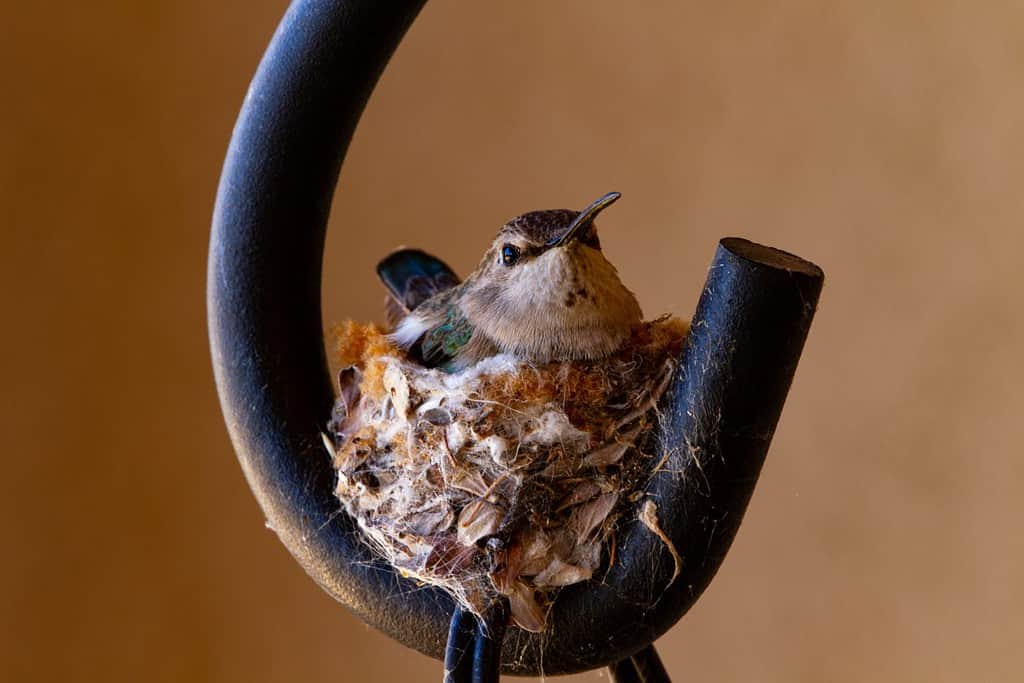
Hummingbird nests are usually small and well-camouflaged. If you find one, consider yourself very lucky.
©Florence-Joseph McGinn/Shutterstock.com
During nesting, hummingbirds spend more time with their eggs than anywhere else. Because of this, you might notice a sharp decline in hummingbirds visiting your feeders around this time. While male hummingbirds don’t share the burden, females will spend the majority of their time in the nest. According to the American Bird Conservancy, “Unlike the many birds that share incubation duties between male and female, hummingbird females are almost always solely responsible for this task. Because eggs are so vulnerable to predators, the female spends most of her time on the nest, leaving only to find food and occasionally to preen.”
4. Males Are Fighting for Territory
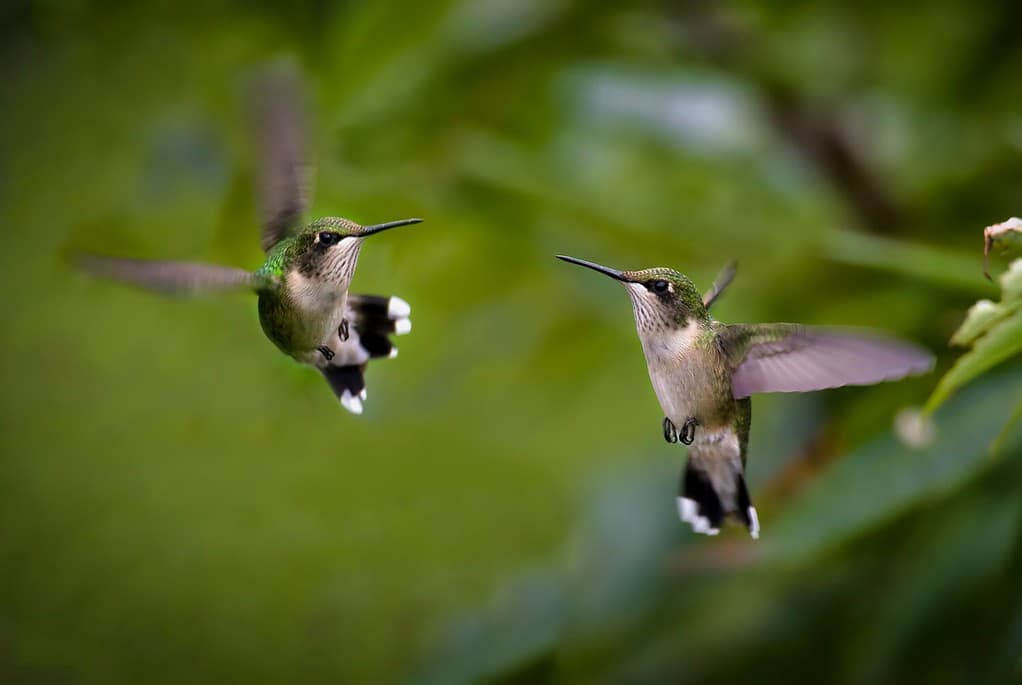
When two males have territory disputes, they will let out high-pitched, three-parted chirps to assert themselves.
©Fiona M. Donnelly/Shutterstock.com
Although hummingbirds might seem small and unintimidating to humans, these birds can be very territorial. In addition to guarding areas known to have ample supplies of food, male hummingbirds will also guard areas with access to females. As hummingbirds return north for the year, they scope out potential locations to settle down. While multiple males might visit the same locations initially, each will settle into their own territory as time goes on. This is why you might see more hummingbirds during the early spring months as opposed to the summer.
5. Hummingbirds May Have Changed Their Dietary Preferences
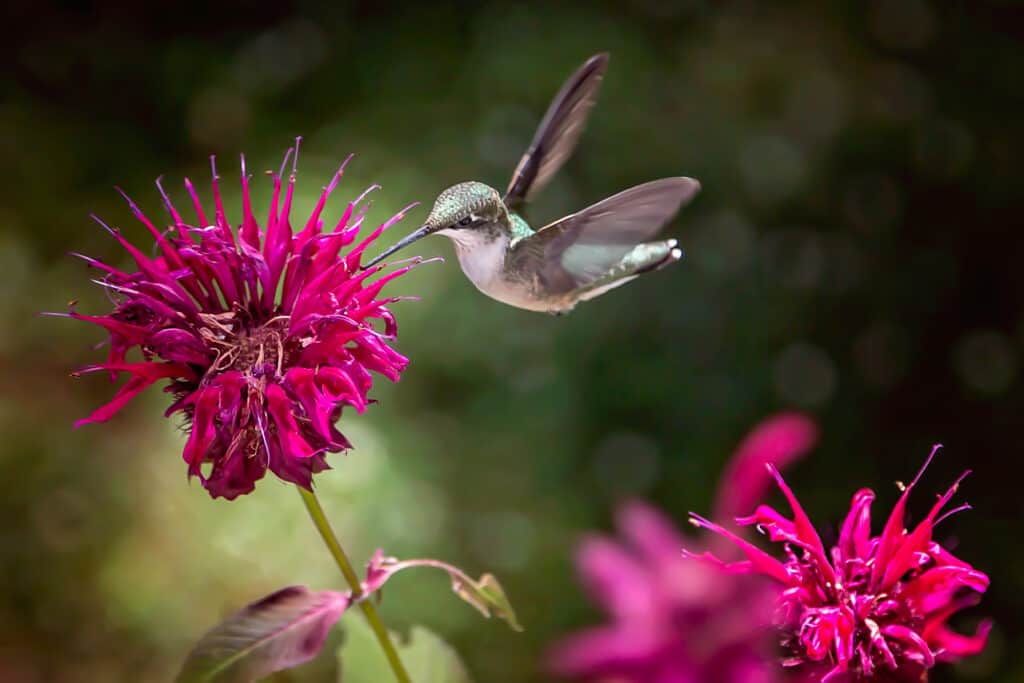
New mothers may seek out insects over flowers or nectar after the chicks have hatched as their babies will benefit from extra protein.
©iStock.com/Cavan Images
While many people think hummingbirds only consume the nectar from flowers and feeders, the truth is that these birds also eat a variety of insects as well as they provide these birds with a wonderful, rich source of protein. If the only food sources available in your yard are flowers and nectar, hummingbirds may venture out elsewhere to meet their dietary needs. Although it might seem like your hummingbirds disappeared, they just might have gone looking for better alternatives.
6. Migration Has Begun

Many hummingbirds travel between 500 and 1,000 miles along their migrations.
©Ramona Edwards/Shutterstock.com
While some individuals living in locations with warmer weather might be able to enjoy the presence of hummingbirds throughout the year, many people living in the north only get to see them for a short while. As colder temperatures approach and daylight hours grow shorter, hummingbirds instinctually know it’s time to travel back down south. If the end of summer is approaching and you notice your hummingbird visitors have disappeared, it could just be that it was simply time for them to go. Don’t worry too much, though. They’ll be back before you know it!
The photo featured at the top of this post is © © Steve Byland/iStock via Getty Images
Thank you for reading! Have some feedback for us? Contact the AZ Animals editorial team.







